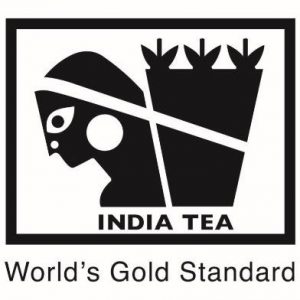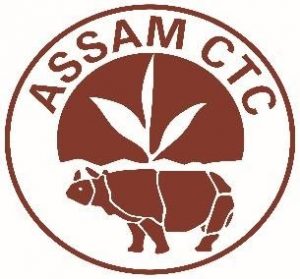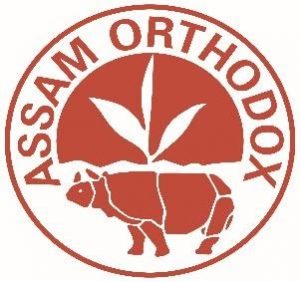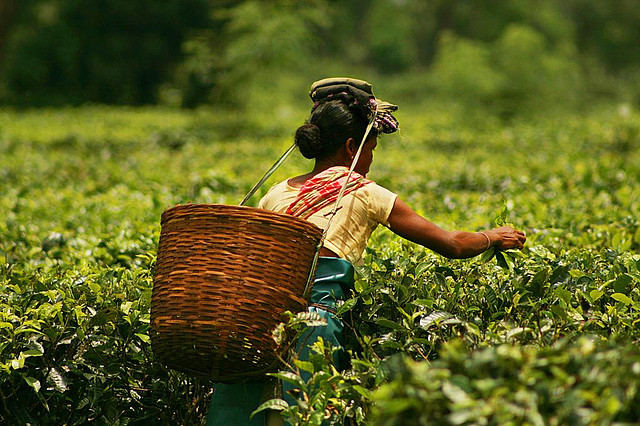This article is written by Rebecca Dias, pursuing a Diploma in Intellectual Property, Media and Entertainment Laws from Lawsikho.com. Here she discusses “How can plantation owners in Assam or Darjeeling use geographical indications such as Assam Tea or Darjeeling Tea? “.

Trust but verify: Tale of two teas.
Primarily, the need for laws such as Trademark, Copyright inter alia Geographical indicators stems from the desire of monopoly or oligopoly in the market. The power wielded by few to control the direction of their profits is sought by many. In a market where authenticity is debatable, the modus operandi is an attempt to inculcate the Russian proverb “Doveryáy, no proveryáy”, which translates to “trust but verify”.
Introduction
India is one of the largest producers of Tea in the world. Being so the standards of Tea that is exported is strictly maintained such as consistency in quality and other aspects as required by law. In the matter of Assam Tea or Darjeeling Tea certain laws are in place so that the interests of the consumers are safeguarded from deception in any form. Generally, to protect GI the following laws are in place:
-
The Goods (Registration and Protection) Act, 1999, which came into effect on 15th September 2003.
-
The Geographical Indications of Goods (Registration and Protection) Rules, 2002.
-
The Trademarks Act, 1999 and Copyright Act, 1957.
In 2007, the Orthodox Assam Tea received a GI tag to the benefit of the tea growers and the tea market in Assam as a whole. Darjeeling Tea received its GI tag in 2004 – 05. Recently, on 16th November 2019, Darjeeling Green Tea and White Tea also received the tag.
Meaning of Geographical Indication
Under Section 2 (e) of the Geographical Indication of Goods (Registration and Protection Act, 1999 it means ‘an indication’ which shows that a goods being agricultural, natural or manufactured from a particular place or it has been manufactured in a specific territory such that any process associated with the creation of the product is identifiable to a particular region, territory or locality as the case may be.
Therefore, it is seen that the association with a process to a region, territory or locality is necessary to constitute a GI. In a nutshell, GI is a certification that a product has certain qualities, is made according to certain methods, or enjoys a certain reputation, due to its geographical root or origin.
According to the World Trade Organization’s TRIPS agreement, GI is “indications” through which the origin of the good can be traced. This is associated with “quality” “reputation” or “other characteristic” of the good attributed or known to be of that origin. (TRIPS Article 22(1)).
Indian Tea Board under the Tea Act, 1953
Individuals, associations, persons or organizations or any authority in a representative capacity can apply for a GI. The ‘Indian Tea Board’ owns the GI relating to Assam Tea and Darjeeling Tea. Many statutory bodies own GIs.
Role of the Tea Board
-
To regulate the production and cultivation of tea.
-
Improve the tea quality.
-
Promote cooperative efforts among producers and manufacturers of tea.
-
Have better working conditions for workers; etc.
-
One has to seek permission from the Tea Board for planting tea on any land not planted with tea or replacing an area by planting tea which was not so earlier. The Tea Board also regulates and controls the total area of land which is under cultivation.
-
The onus to maintain standard and quality.
-
To ensure the supply of genuine Assam tea and Darjeeling Tea they check for the appropriate labelling.
The Government incorporated a compulsory system that certifies the authenticity of exported teas into the Tea Act, 1953. According to this system it is compulsory for all the dealers/plant owners of the tea to engage in a license agreement with the Tea Board of India on payment of an annual license fee.
Terms and conditions of the agreement provide, inter alia, that the licensees must provide information about the production and manufacture of tea and its sale as the case may be. Blending with teas of other origin is not permitted.
Certificates of origin are checked which accompanies the exports of Tea. The export of tea is not permitted without such a certificate.
Use of GI by Plant owners
GI Logos

The Indian Tea Board maintains the appellation system for the protection of majority tea names and origins. The logos reflect the true source. That is the purpose of a GI. Example of Darjeeling and Assam are given below. The Tea Board administer Assam Tea and Darjeeling Tea under the Tea Act, 1953.



Rights of a GI Holder
Enables the GI tag holder to use the indication to prevents its use by others whose product does not adhere to given standards. For example, in India, the Darjeeling tea geographical indication is protected, and the GI right holders of Darjeeling tea can exclude the use of the term “Darjeeling” for tea not grown or not produced according to the appropriate standards to use the GI tag.
But, if another plan owner or producer or manufacturer utilizes the same techniques and having the same human creativity into the product as those in the standards for that indication, they can use such GI tag.
The protection for a geographical indication is generally obtained by obtaining a right over the sign that constitutes the indication. (see above).
Why the certificate is needed by the plantation owners?
It protects the Tea from being replicated anywhere else with the same qualities.
Creates a brand identity for this tea variety, and boosts its export potential while protecting it.
The Tea board strives to protect the interest of the plantation owners as seen in the ITC case. Due to the GI label, the Darjeeling tea did well in markets internationally while the Indian tea market faced a slump.
The GI tag helps to boost the growth in these regions. It helps them build distinct identities whether being tea from Assam or Darjeeling, as the case may be. This fosters trust and builds customer relationship.
Procedure for the plantation owners to use the GI tag associated with the Darjeeling and Assam tea
Darjeeling
- The application under FORM I
- Lease Agreement
Done on plain paper. It has to be signed by a person in the appropriate capacity. The signature has to be on the pages. The Agreement has to be accompanied by a Company seal/ Body, on the last page. This has to be sent to the Tea Board (Chennai) by post. The result is that one can use the term “Darjeeling” and the logo marks associated with it (optional).
-
Payment
For Use, payment has to be under Schedule V, along with the above-mentioned Lease Agreement / Use Agreement.
-
License Number
This number is issued to the applicant, this is sent to the applicant along with the signed copy of the agreement.
The number provided has to be on all the goods accompanied with “Darjeeling & Darjeeling Logo – protected intellectual property of Tea Board, India used under license”
-
Annual filing FORM
This is filed annually to renew under schedule VI, on the goods sold under the Darjeeling logo and term.
Assam Tea
The application has to be on the letterhead of the applicant who so desires under Form I. It has to be duly verified by: –
-
any Tea Association,
-
Trade Association,
-
CTTA,
-
GTAC,
-
Registered buyer, seller,
-
Exporter,
-
Importer,
-
manufacturer,
-
Broker
The above may be sent to IPR Cell, Tea Board, 14, BTM Sarani, Kolkata-1.
The application copies need to be accompanied with the following documents:
Copy of –
-
The garden registration (in case of producer)
-
An export license issued under Tea (Distribution & Export) Control Order, 2005 (if exporter)
-
Buyer license issued under Tea (Marketing) Control Order, 2003 (if buyer/trader)
-
Broker License issued under Tea (Marketing) Control Order, 2003 (if broker)
-
Warehouse License issued under Warehouse (Licensing) Order, 1989 (if warehouse owner)
Further, a duplicate of the “License Agreement” as under Schedule IV is to be sent along with such an application form.
The first page of such an agreement shall be printed in the Non-Judicial Stamp Paper of Rupees 10/20. The other pages may be printed in legal size paper. All the papers in such a submission have to be stamped and signed by the authorised signatory of the applicant.
The application fees have to be paid in the form of Draft/RTGS according to the bank details along with the application.
Conclusion
In this essay, I discussed the process that allows a group of people to wield exclusivity in the market. The GI tag associated with these teas or any other GI good is generally under an authority. In the case of Assam and Darjeeling tea being the Indian Tea Board. The plantation owners have to obtain a certificate through the procedures prescribed to them. In addition to these formalities, the plantation owners have to be consistent and active in showing that their tea meets the desired standard and quality as prescribed by the Board. This is essential as it allows the Board to maintain competitiveness in the market.
All these steps aid against counterfeiting, blending and other unfair practices.
Towards the end of 2019, there have been reports of the Board’s plan to wholly remove the ‘Annual Renewal’ model presently adopted and shift to a longer period in line with the vision of “Ease of doing business”.
So, trust but verify.
Endnotes
- http://www.teaboard.gov.in/pdf/policy/RemaingingJurisdictions.pdf
- http://www.teaboard.gov.in/pdf/policy/RemaingingJurisdictions.pdf
- http://www.teaboard.gov.in/pdf/policy/RemaingingJurisdictions.pdf
- http://www.teaboard.gov.in/pdf/Form_I_pdf6430.pdf
- http://www.teaboard.gov.in/pdf/Scedule_IV_pdf3133.pdf
Students of Lawsikho courses regularly produce writing assignments and work on practical exercises as a part of their coursework and develop themselves in real-life practical skill.
https://t.me/joinchat/J_0YrBa4IBSHdpuTfQO_sA
Follow us on Instagram and subscribe to our YouTube channel for more amazing legal content.
 Serato DJ Crack 2025Serato DJ PRO Crack
Serato DJ Crack 2025Serato DJ PRO Crack










 Allow notifications
Allow notifications


